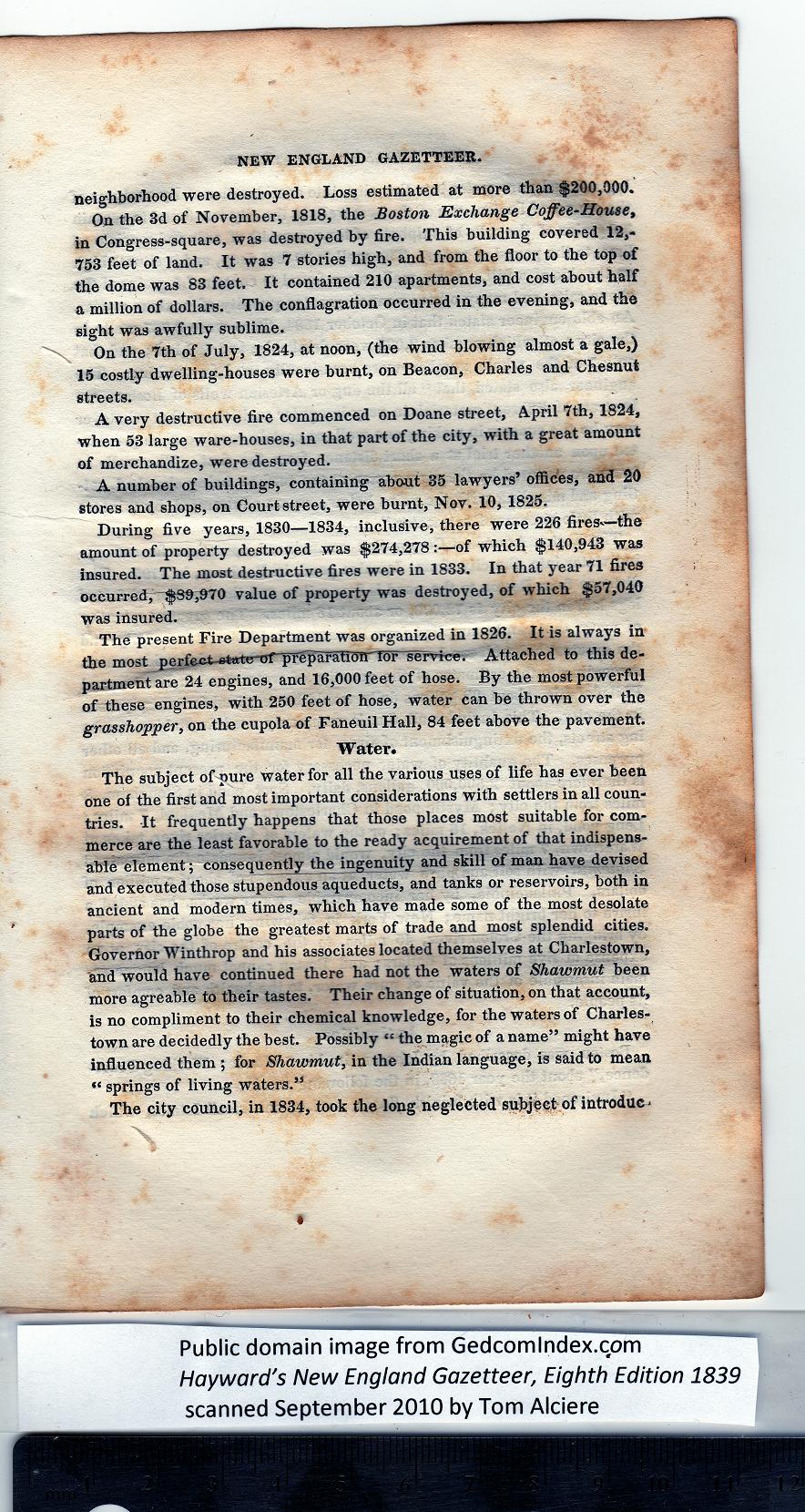|
NEW ENGLAND GAZETTEER.
neighborhood were destroyed. Loss estimated at more than $200,900.
On the 3d of November, 1818, the Boston Exchange Coffee-House,
in Congress-square, was destroyed by fire. This building covered 12,-
753 feet of land. It was 7 stories high, and from the floor to the top of
the dome was 83 feet. It contained 210 apartments, and cost about half
a million of dollars. The conflagration occurred in the evening, and the
sight was awfully sublime.
On the 7th of July, 1824, at noon, (the wind blowing almost a gale,)
15 costly dwelling-houses were burnt, on Beacon, Charles and Chesnut
streets.
A very destructive fire commenced on Doane street, April 7th, 1824,
when 53 large ware-houses, in that part of the city, with a great amount
of merchandize, were destroyed.
A number of buildings, containing about 35 lawyers’ offices, and 20
stores and shops, on Court street, were burnt, Nov. 10, 1825.
During five years, 1830—1834, inclusive, there were 226 fires*—the
amount of property destroyed was $274,278:—of which $140,943 was
insured. The most destructive fires were in 1833. In that year 71 fires
occurred, ^$39,070 value of property was destroyed, of which $57,040
was insured.
The present Fire Department was organized in 1826. It is always in
the most perfect-^stttt^-njf^re^aration lor service. Attached to this de-
partment are 24 engines, and 16,000 feet of hose. By the most powerful
of these engines, with 250 feet of hose, water can be thrown over the
grasshopper, on the cupola of Faneuil Hall, 84 feet above the pavement.
Water*
The subject ofrpure water for all the various uses of life has ever been
one of the first and most important considerations with settlers in all coun-
tries. It frequently happens that those places most suitable for com-
merce are the least favorable to the ready acquirement of that indispens-
able element; consequently the ingenuity and skill of man have devised
and executed those stupendous aqueducts, and tanks or reservoirs, both in
ancient and modern times, which have made some of the most desolate
parts of the globe the greatest marts of trade andjmost splendid cities.
Governor Winthrop and his associates located themselves at Charlestown,
and would have continued there had not the waters of Shawmut been
more agreable to their tastes. Their change of situation, on that account,
is no compliment to their chemical knowledge, for the waters of Charles-
town are decidedly the best. Possibly “ the magic of a name” might have
influenced them ; for Shawmut, in the Indian language, is said to mean
“ springs of living waters.”
The city council, in 1834, took the long neglected subject of introduce
PREVIOUS PAGE ... NEXT PAGE
This page was written in HTML using a program written in Python 3.2 and image-to-HTML text generated by ABBYY FineReader 11, Professional Edition.
|
